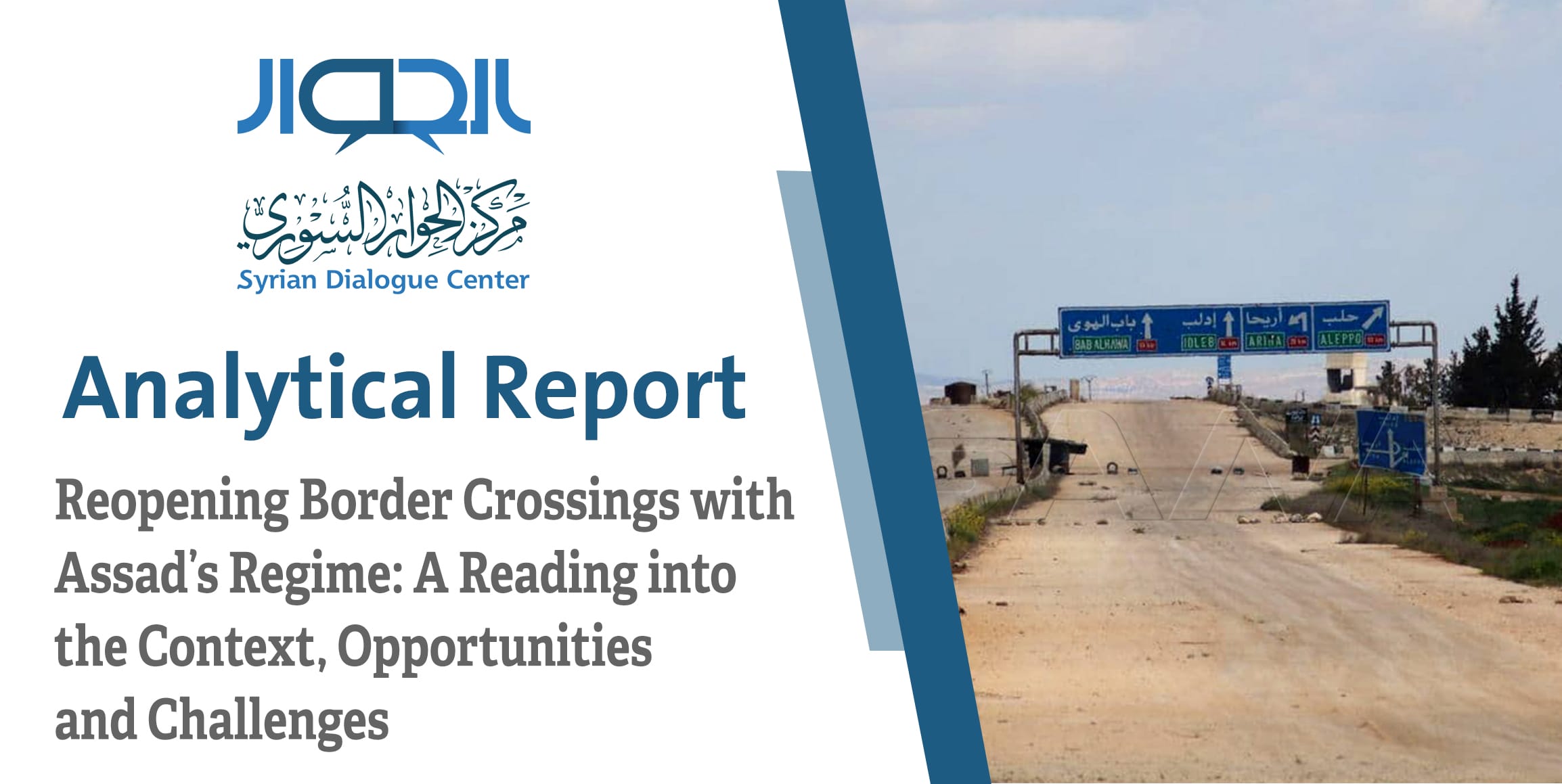
Reopening Border Crossings with Assad’s Regime: A Reading into the Context, Opportunities and Challenges
Analytical report produced by the Shared Identity and Cohesion unit.
Abstract:
This report attempts to assess the economic, societal, and political nature of the current situation in the areas controlled by revolutionary and opposition forces. As well as how it is affected by the economic exchange with regions controlled by other factions. This is done using the descriptive analytical method.
The first section discusses the state of the internal crossings before their closure. In the areas controlled by Hay’at Tahrir al-Sham “HTS”, the organization has completely dominated the economy, making the crossings a tool for monopolism and a primary source of funding. On the other hand, in the areas under the control of the Syrian National Army, compromised of various factions, there exists no monopoly on the economic sector or complete control over the crossings by any specific party. Thus there is a lot of competition for economic resources between the militaristic factions. In the current state the smuggling lines have become rather organised, almost public and practiced in an almost official capacity by the various factions given that they have become a source of material resources contributing to covering the costs, making these lines an alternative to crossings with regards to the movement of people and trade goods.
The second section of the report clarifies the positions taken by Russia and Turkey with regards to opening crossings; Russia aims to tie the issue of internal crossings to the issue of expanding the mechanism of aid going through the Bab Al-Hawa border crossing. Meanwhile for Turkey the opening of border crossings can be a gateway to continued security negotiations with Assad’s regime, perhaps using economic normalisation as an entrance to the political and security issues.
In the third section the report takes a look at the positions of the local populous with regards to the issue of opening internal crossings. It displays that the arguments of opponents to opening crossings focus on security, economic and political fears, especially given the administrative, governmental, security and economic dispersion revolutionary and opposition regions are going through at the moment. On the other hand the arguments of supporters mainly revolved around the uselessness of closing crossings given the continued use of smuggling lines, and the existence of the same threats when using them in addition to the monopolisation of the economic benefits (which are very miniscule) of smuggling lines by the factions that control them.
The report concluded that given the current conditions in the various regions as well as the state of the sides controlling those regions, Assad’s regime has the widest margin to negotiate a use of the crossings for its economic and monetary advantage, while “HTS” comes in the second place and the areas controlled by the Syrian National Army being the ones gaining the least.
Based on that, the report recommended refusing to open the crossings by organising peaceful popular activism rejecting it, that is because of the political, security and economic threats tied to it. That is done by creating a popular committee that organises the various activities and events in a peaceful civilised manner away from acts of vandalism. This committee raises awareness in the areas of the opposition on the threats of opening the crossings in the current context, as well as pressuring revolutionary and opposition forces that might succumb to external pressures forcing them to open the crossings.
The report also points at the possibility of a forceful complete or partial opening of crossings; and so made some recommendations that could help mitigate the negatives that might accompany that.
To read the full analysis report (Arabic)
مؤسسة بحثية سورية تسعى إلى الإسهام في بناء الرؤى والمعارف بما يساعد السوريين على إنضاج حلول عملية لمواجهة التحديات الوطنية المشتركة وتحقيق التنمية المستدامة





